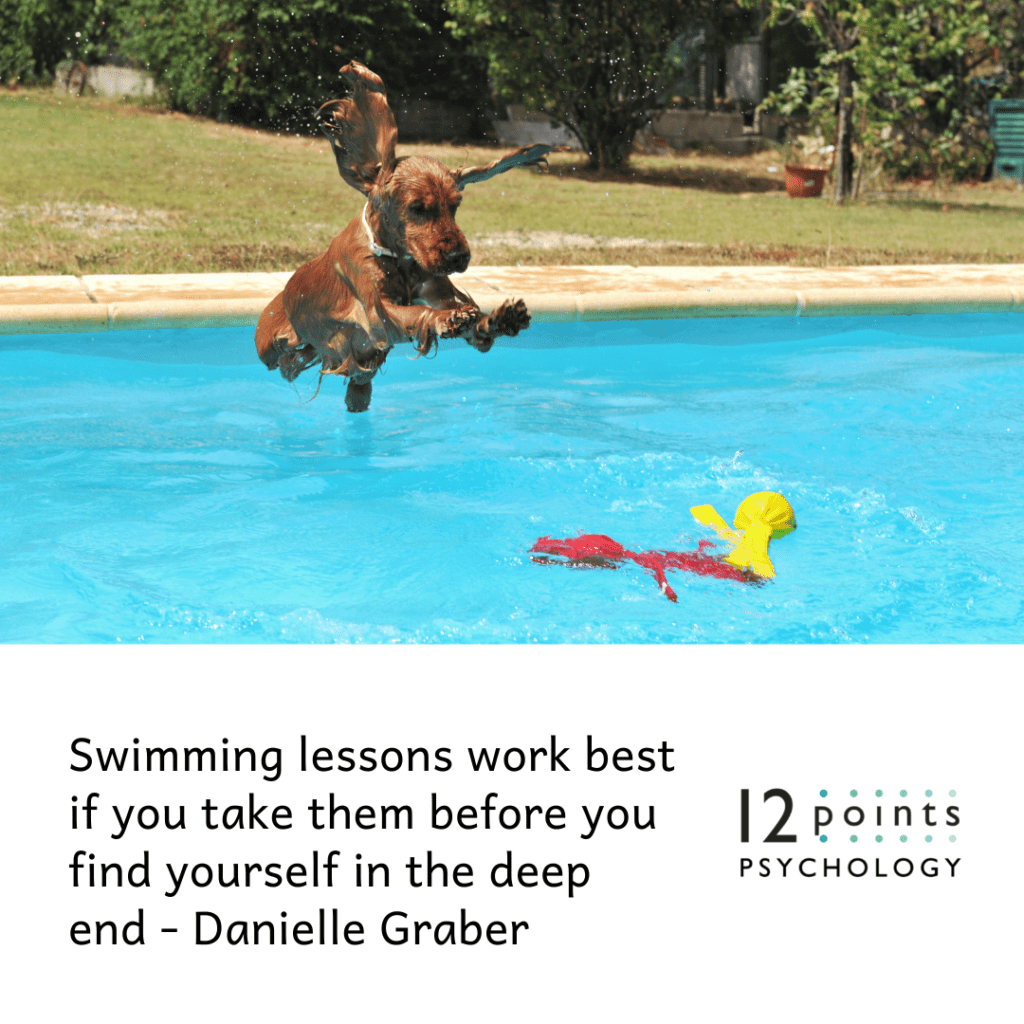I happen to be a therapist who likes to set homework. Not all therapists do (it may not be appropriate to the therapeutic approach or goals for therapy) and it certainly doesn’t fit with every therapist’s approach or training, but for me it’s a win-win.
Partly because I enjoy the look on the kids faces when I say, “I’m going to give you some homework to do”…
Partly because I miss lecturing and setting assignments…
But mainly because it’s the best way to achieve real and lasting change.
Allow me to explain.
When you come to a therapist and you want to work on; reducing your anxiety, or managing your mood, or improving your relationship etc, you are going to be talking about making changes.
And while we humans are pretty adaptable as a species, we kind of suck as individuals when it comes to making changes. Our brains are just not wired for it. They’re wired to keep us safe, and change isn’t safe because it brings uncertainty (which our brains really don’t like).
So, if you’re trying to change a lifelong pattern of; negative self-talk, self-sacrificing or picking the wrong partners etc, your brain is going to resist the change.
It just is.
Try it. Pick up your phone and switch apps with your non-dominant hand (after you’re finished reading this of course!). Or hold the phone to your other ear next time you make a call. Write with that non-dominant hand, leave the toilet paper fold coming from underneath instead of over the top or change the way you tie your shoelaces. Your brain will NOT like it!
And this is why we need to practice.
We need to repeat the new way of answering the phone, or the new way of tying the shoelaces, over and over and over again until our brains start to realise that nothing bad happens when we do it this way and it can calm down.
This is especially true if we’re talking about new ways of dealing with things like big emotions or panic attacks. I don’t care how good your therapist is, even if you spent the entire hour of your weekly session practicing your breathing or grounding techniques, there’s another 167 hours every week where you’re NOT practicing that skill and the old behaviours can creep back in.
Think of it this way.
If you can’t swim and someone throws you in the deep end of the pool, you might learn to keep your head above water, but you’re certainly not going to be a confident swimmer. And if you find yourself in open water, it’s probably not going to go terribly well for you.
We learn in the shallow end so we can practice the skills we need to be comfortable in the deep end. And just like kids practice blowing bubbles in the bathtub, completing your homework tasks in between sessions, is all about getting your brain and your body comfortable with these new skills, so when the time comes you won’t sink!
Danielle Graber
Clinical Psychologist, Director & Homework Giver


